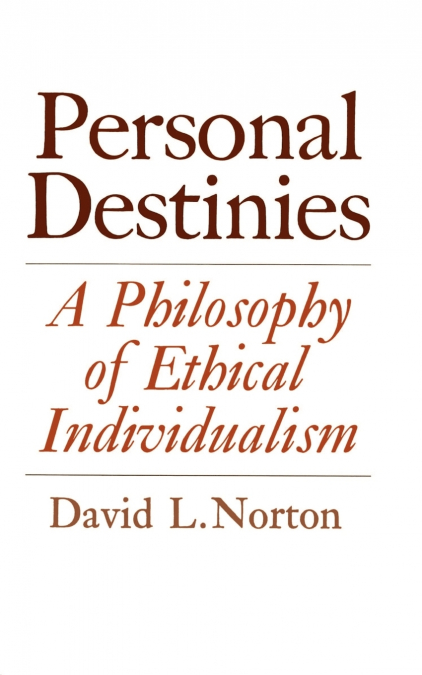
David L. Norton / David LNorton
 Librería 7artes
Librería 7artes
 Donde los libros
Donde los libros
 Librería Elías (Asturias)
Librería Elías (Asturias)
 Librería Kolima (Madrid)
Librería Kolima (Madrid)
 Librería Proteo (Málaga)
Librería Proteo (Málaga)
What is the meaning of life? Modern professional philosophy has largely renounced the attempt to answer this question and has restricted itself to the pursuit of more esoteric truths. Not so David Norton. Following in the footsteps of Plato and Aristotle, Kierkegaard and Nietzsche, Jung and Maslow, he sets forth a distinctive vision of the individual’s search for his place in the scheme of things.Norton’s theory of individualism is rooted in the eudaimonistic ethics of the Creeks, who viewed each person as innately possessing a unique potential it was his destiny to fulfill. Very much the same idea resurfaced in modern times with the British idealists and Continental existentialists. The author reviews these antecedents, showing how his theory differs from those of his predecessors.After a fascinating chapter on 'The Stages of Life,' Norton shows how the mature consciousness of one’s destiny leads to direct, intimate knowledge of other persons, and how this in turn provides the basis for social morality. The conception of justice in which this theory culminates, rooted as it is in essential human differences, provides a challenging alternative to the much-discussed theories of Rawls and Nozick.